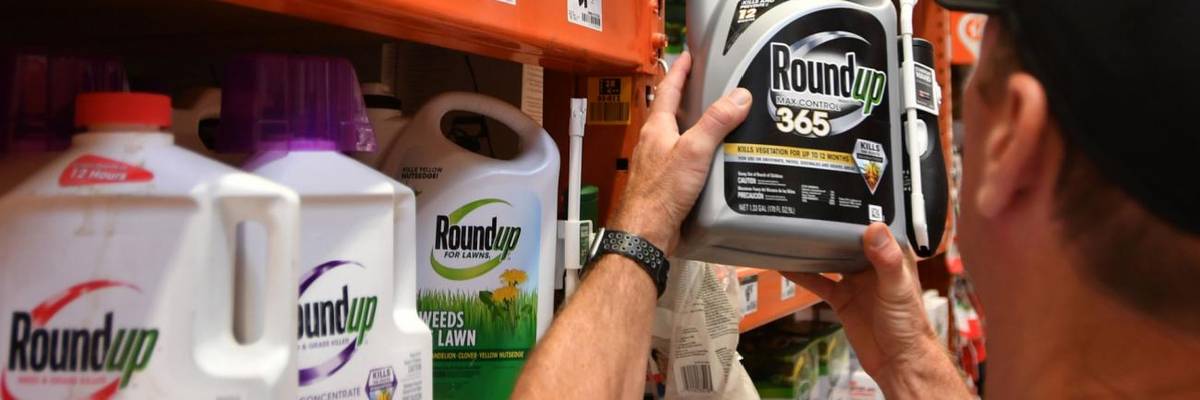

SUBSCRIBE TO OUR FREE NEWSLETTER
Daily news & progressive opinion—funded by the people, not the corporations—delivered straight to your inbox.
5
#000000
#FFFFFF
To donate by check, phone, or other method, see our More Ways to Give page.


Daily news & progressive opinion—funded by the people, not the corporations—delivered straight to your inbox.

A customer Gary Harms shops for Roundup products at a store in San Rafael, California, on July, 9, 2018. (Photo: Josh Edelson/AFP via Getty Images)
"Monsanto's conduct evidenced reckless disregard of the health and safety of the multitude of unsuspecting consumers it kept in the dark."
--1st Appellate District in the Court of Appeal for California
\u201cBam! Court says "rather than fairly stating all the relevant evidence, Monsanto @Bayer has made a lopsided presentation that relies primarily on the evidence in ITS favor. This type of presentation may work for a jury, but it will not work for the Court of Appeal."\u201d— carey gillam \u270d\ufe0f \ud83d\udcd3 (@carey gillam \u270d\ufe0f \ud83d\udcd3) 1628546434
Dear Common Dreams reader, The U.S. is on a fast track to authoritarianism like nothing I've ever seen. Meanwhile, corporate news outlets are utterly capitulating to Trump, twisting their coverage to avoid drawing his ire while lining up to stuff cash in his pockets. That's why I believe that Common Dreams is doing the best and most consequential reporting that we've ever done. Our small but mighty team is a progressive reporting powerhouse, covering the news every day that the corporate media never will. Our mission has always been simple: To inform. To inspire. And to ignite change for the common good. Now here's the key piece that I want all our readers to understand: None of this would be possible without your financial support. That's not just some fundraising cliche. It's the absolute and literal truth. We don't accept corporate advertising and never will. We don't have a paywall because we don't think people should be blocked from critical news based on their ability to pay. Everything we do is funded by the donations of readers like you. Will you donate now to help power the nonprofit, independent reporting of Common Dreams? Thank you for being a vital member of our community. Together, we can keep independent journalism alive when it’s needed most. - Craig Brown, Co-founder |
"Monsanto's conduct evidenced reckless disregard of the health and safety of the multitude of unsuspecting consumers it kept in the dark."
--1st Appellate District in the Court of Appeal for California
\u201cBam! Court says "rather than fairly stating all the relevant evidence, Monsanto @Bayer has made a lopsided presentation that relies primarily on the evidence in ITS favor. This type of presentation may work for a jury, but it will not work for the Court of Appeal."\u201d— carey gillam \u270d\ufe0f \ud83d\udcd3 (@carey gillam \u270d\ufe0f \ud83d\udcd3) 1628546434
"Monsanto's conduct evidenced reckless disregard of the health and safety of the multitude of unsuspecting consumers it kept in the dark."
--1st Appellate District in the Court of Appeal for California
\u201cBam! Court says "rather than fairly stating all the relevant evidence, Monsanto @Bayer has made a lopsided presentation that relies primarily on the evidence in ITS favor. This type of presentation may work for a jury, but it will not work for the Court of Appeal."\u201d— carey gillam \u270d\ufe0f \ud83d\udcd3 (@carey gillam \u270d\ufe0f \ud83d\udcd3) 1628546434